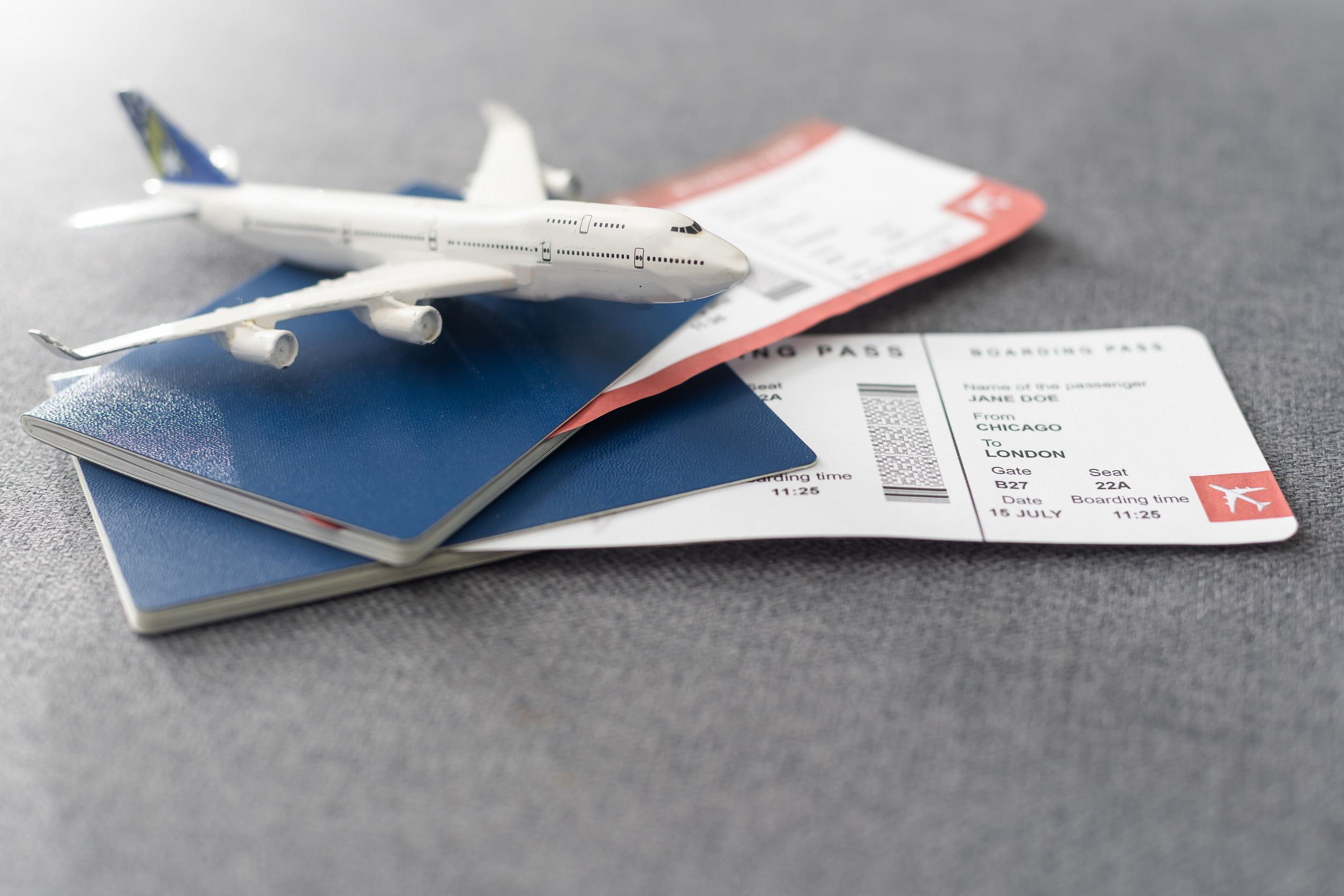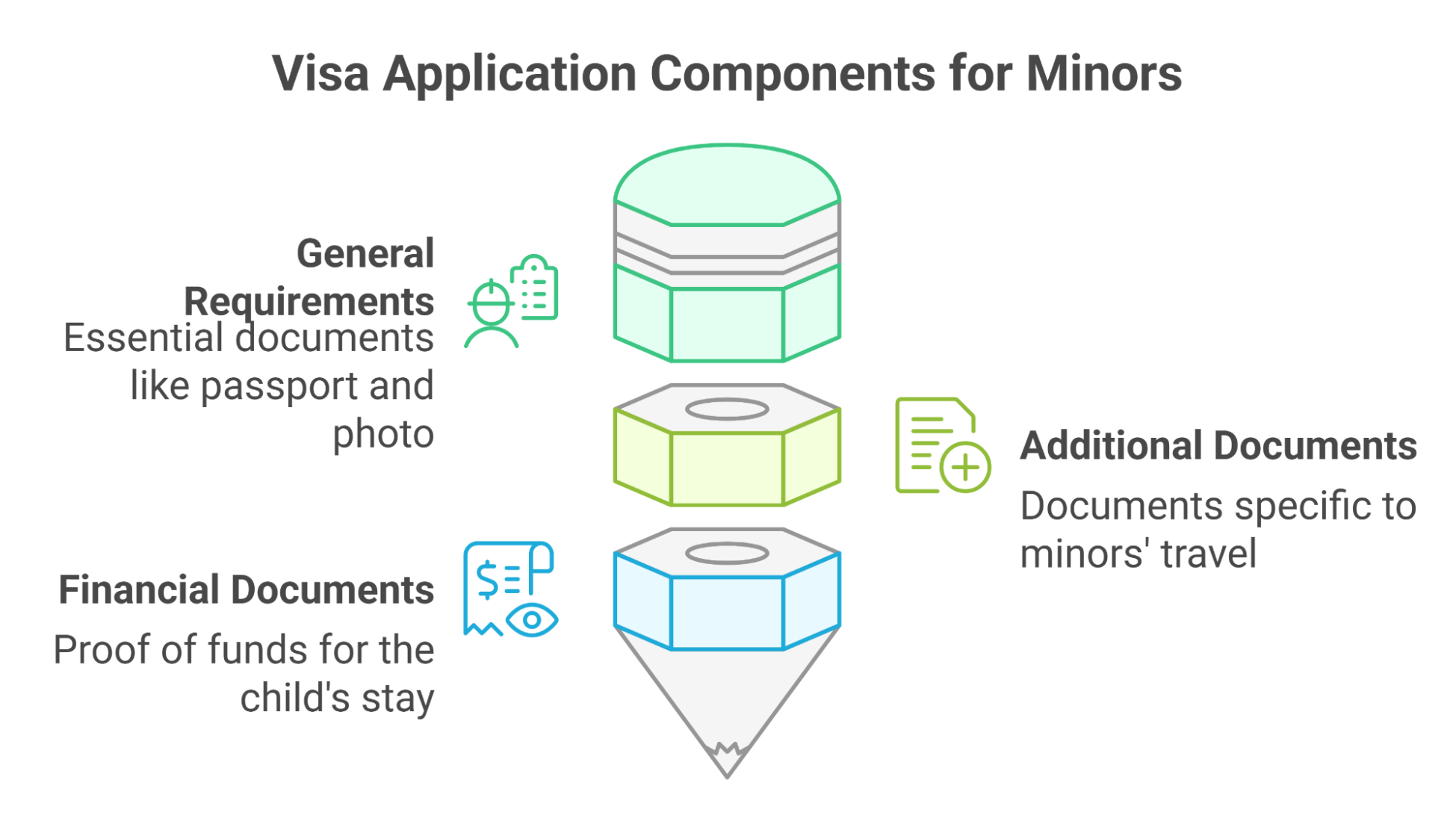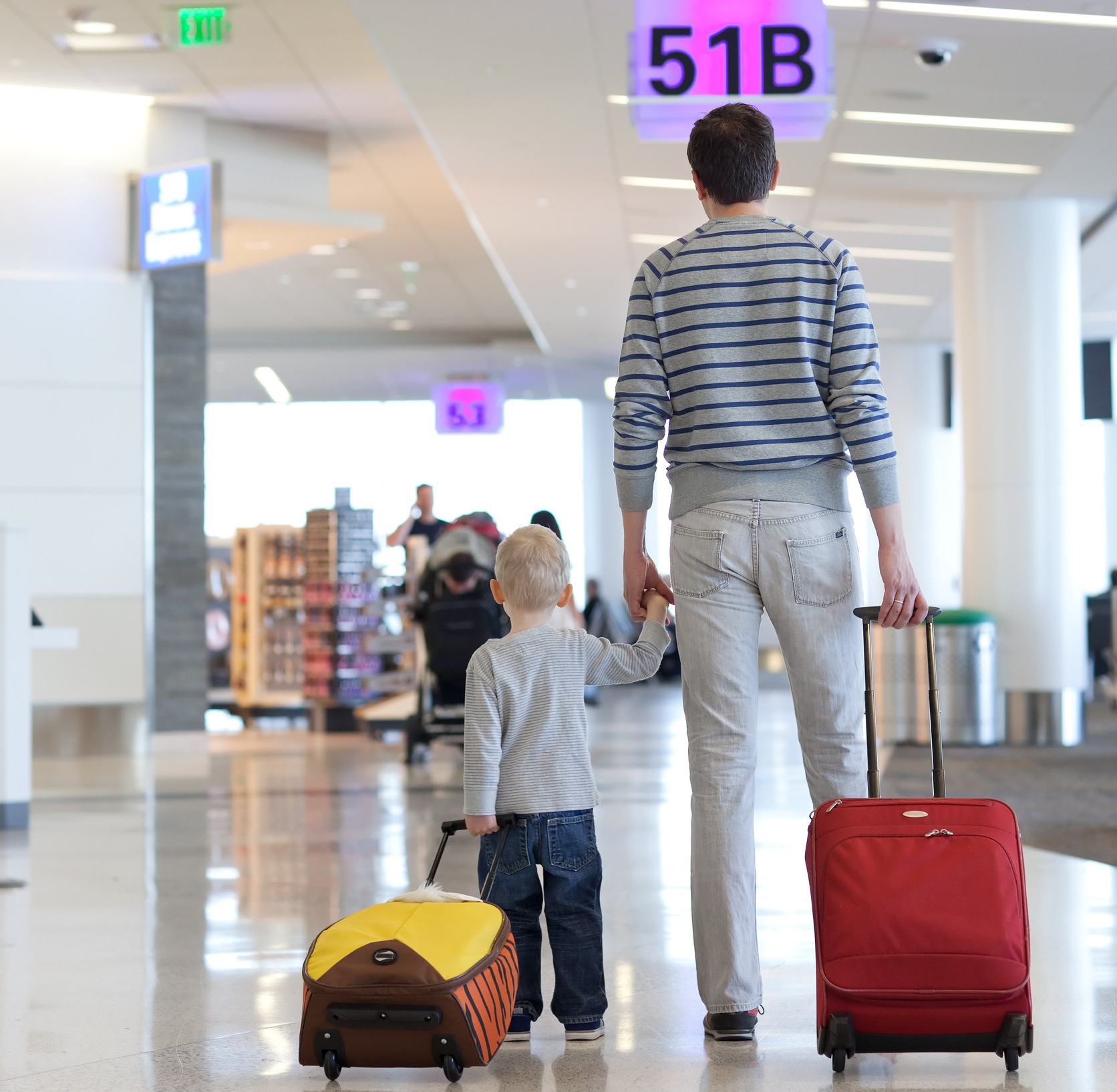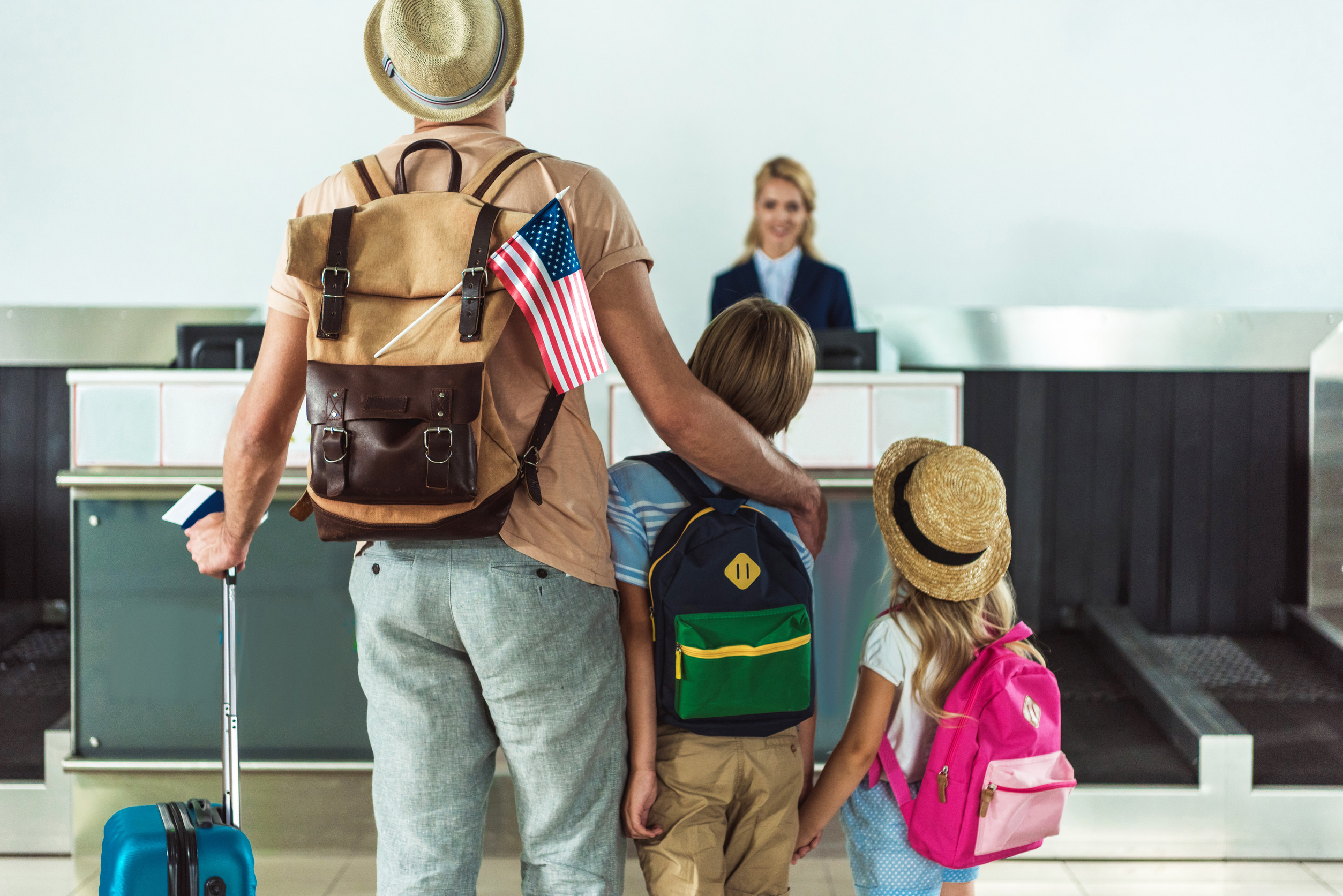Types of eTAs for Minors to South Korea
The eTA type required for minors depends on the purpose of their travel. Here are the most common eTA categories:
|
eTA Type |
Purpose |
Eligibility/Conditions |
|
Tourist eTA (C-3-9) |
For short-term visits, such as vacations or family trips |
Proof of travel purpose (e.g., family trip), accommodation details |
|
Student eTA (D-2, D-4) |
For minors attending educational institutions in South Korea |
Acceptance letter from an educational institution, proof of financial resources |
|
Dependent eTA (F-3) |
For children accompanying parents with long-term eTAs (work, study, residency) |
Parent’s valid long-term eTA status, proof of relationship, financial support |
Required Documents for Minors eTA to South Korea

When applying for a South Korea eTA for minors, specific documentation must be submitted to prove their eligibility. Below is a detailed checklist of the required documents:
General Requirements
- Completed eTA Application Form: This form should be filled out by a parent or legal guardian on behalf of the child. Ensure all information is accurate and up to date.
- Valid Passport: The child’s passport must be valid for at least six months beyond the intended stay and have sufficient blank pages for eTA stamps.
- Passport-Size Photo: Provide a recent photo of the minor that meets South Korean eTA photo specifications.
- Flight Itinerary and Accommodation Details: Proof of planned travel and stay, such as flight tickets and hotel bookings.
Additional Documents for Minors
- Birth Certificate: A copy of the child’s birth certificate is required to confirm their identity and relationship to the accompanying adult(s).
- Parental Consent Letter: If the child is traveling with one parent, a legal guardian, or unaccompanied, a notarized letter of consent from the non-traveling parent(s) is mandatory.
- Proof of Guardianship (if applicable): Legal documents showing guardianship in cases where the child is not traveling with biological parents.
- Financial Documents: Evidence of sufficient funds to support the child during their stay, such as bank statements from the parent or guardian.

Special Considerations for Unaccompanied Minors
If a minor is traveling alone, additional measures must be taken to ensure their safety and compliance with immigration laws. The following documents are generally required:
- Authorization from Both Parents: A notarized consent form signed by both parents or legal guardians is required.
- Details of the Escort: If the child is traveling with a designated escort, provide the escort’s personal and contact information.
- Arrival Arrangements: Provide the name, address, and contact details of the person who will receive the child upon arrival in South Korea.
- Emergency Contact Information: Contact details of the parents or guardians in case of emergencies.
Application Process for Minors eTA to South Korea
The application process for a South Korea eTA for minors is straightforward but requires careful preparation. Follow these steps to ensure a successful application:
Complete the eTA Application Form
Fill out the South Korea eTA application form with accurate information. Make sure the parent or legal guardian signs the form on behalf of the minor.
Gather Required Documents
Collect all necessary documents, including general requirements like a valid passport and recent photos, along with additional documents for minors, such as a birth certificate, proof of relationship with the parent or guardian, and a consent letter if one parent is not traveling.
Submit the Application
Submit the application at the nearest Embassy or Consulate. In some cases, you may be able to submit it through an authorized eTA processing center.
Pay the eTA Fee
Check the eTA fee applicable for the type and duration of the stay. Confirm the accepted payment methods at the Embassy or eTA center.
Wait for Processing and Collect the eTA
eTA processing usually takes 1-6 Working Days. Once the eTA is approved, collect it from the Embassy, Consulate, or eTA center, and ensure all the details are correct.
South Korea eTA Processing Time and Fees for Minors
When applying for a South Korea eTA for a minor, it’s important to understand the processing times and associated fees to ensure a smooth application process. Here’s an overview of what to expect:
Processing Time
The typical processing time for a South Korea eTA is 1-6 Working Days, although this can vary depending on the type of eTA and the workload of the Embassy or Consulate. Peak seasons or busy periods may cause delays, so it’s a good idea to apply 1-2 months ahead of your travel date to avoid any complications.
eTA Fees
eTA fees vary based on the type of eTA and nationality. For minors, the fees are generally the same as for adults unless otherwise specified by the Embassy. Some countries may offer free eTAs for children below a certain age, but this differs by location. Always verify the current fee structure and accepted payment methods with the Embassy or Consulate in your area.
South Korea eTA Validity for Minors
When applying for a South Korea eTA for minors, understanding the eTA's validity period is essential for planning the trip. Here’s what you need to know:
|
eTA Type |
Validity Period |
Details |
|
Short-Term Tourist eTA (C-3) |
Typically valid for 90 days or less |
Validity depends on the type of eTA and applicant's nationality |
|
Multiple Entry eTA |
Valid for 6 months to 1 year |
Allows multiple entries within the validity period |
|
Long-Term eTAs (Student, Dependent) |
Valid for 6 months to 2 years |
Validity depends on the eTA type, such as student or dependent eTA |
Extensions
Extensions are possible for some eTA types if the minor needs to stay longer. However, it’s essential to apply for an extension before the eTA expires. Extensions are typically granted based on the eTA type and the applicant’s circumstances.
Health Tips for Minors Traveling to South Korea

Ensuring the health and well-being of minors during travel is crucial for a smooth experience. Here are some essential health tips when traveling to South Korea with children:
- Consult a Doctor Before Travel: Visit a pediatrician to check if any vaccinations are required or recommended before traveling. Ensure routine vaccinations are up to date and ask about any health risks specific to South Korea.
- Carry a Health Kit: Pack a travel health kit with essential medications like pain relievers, allergy medicine, and anything specific your child may need (e.g., inhalers, diaper rash cream). Include a thermometer, hand sanitizer, and basic first aid supplies.
- Hydration and Snacks: Keep your child hydrated, especially during flights or long travel days. South Korea's tap water is safe to drink, but bottled water is widely available. Pack familiar snacks to avoid any food sensitivities or picky eating issues.
- Understand Local Healthcare: Familiarize yourself with local healthcare options and nearby hospitals or clinics. South Korea has excellent healthcare, but it’s useful to know where to go in case of an emergency. Keep your health insurance card and any necessary medical documents handy.
- Sun Protection and Weather Preparedness: South Korea's weather can vary greatly depending on the season. Ensure your child wears sunscreen, a hat, and protective clothing in the summer. In winter, pack warm layers and cold-weather gear, as temperatures can drop significantly.
- Food Safety: South Korean cuisine is generally safe, but it’s essential to be cautious with street food, especially for younger children. Opt for well-cooked meals and avoid raw items, like seafood, unless you're sure it's freshly prepared.
- Rest and Sleep: Traveling can disrupt routines, so ensure your child gets enough rest. Try to stick to familiar sleep schedules and give them time to adjust to time zone changes. A good night’s sleep is important to maintain energy and health during the trip.
- Stay Active and Stretch: Long flights or bus rides can be hard on kids. Encourage stretching or short walks to avoid stiffness or discomfort. When you arrive, take frequent breaks to let your child move around, especially when exploring or sightseeing.
Common Challenges in Applying for a Minor's eTA to South Korea
Applying for an eTA for minors can sometimes present unique challenges that require extra attention. Being prepared and understanding potential obstacles can help ensure a smoother application process. Here are common challenges and how to overcome them:
Incomplete Documentation: Missing or outdated documents cause delays. Double-check minor-specific requirements like birth certificates and consent letters. Use a checklist for accuracy.
Confusing Guidelines: Unclear minor-specific requirements lead to confusion. Contact the Embassy or Consulate for clarification. Refer to official website instructions.
Parental Consent Problems: Unavailable consent from one parent delays the process. Provide a notarized consent letter or custody documents. Include additional legal proof if needed.
Processing Delays: Peak seasons or errors extend processing time. Apply early to avoid last-minute issues. Verify expected timelines with the Embassy.
Payment Issues: Unfamiliar payment methods complicate submission. Confirm acceptable payment methods and currency requirements. Prepare payment details in advance.
Tips for Traveling with Minors to South Korea

Traveling to South Korea with children can be an exciting adventure, but preparation is key to ensure a stress-free trip. Here are some tailored tips:
- Prepare Travel Documents: Ensure all passports are valid and eTAs (if required) are obtained. Carry documents like birth certificates and notarized parental consent letters, especially if one parent is traveling alone.
- Pack Essentials: Bring snacks, medications, baby wipes, and a change of clothes for the journey. South Korea is family-friendly, but having familiar items like baby food or formula can be helpful in case of dietary preferences.
- Choose Kid-Friendly Accommodations: Book hotels or rentals with family amenities like cribs, high chairs, or play areas. Look for accommodations near public transportation or family attractions for convenience.
- Plan Child-Friendly Activities: Explore places like Lotte World, Everland, or the COEX Aquarium. Parks such as Namsan or Gyeongbokgung Palace offer cultural experiences combined with space for kids to play.
- Navigate Transportation Easily: South Korea's public transportation system is efficient. Use subways and buses, which often accommodate strollers. Download apps like Kakao Map or Naver Map for easy navigation.
- Be Prepared for Dining Out: Many restaurants in South Korea welcome families, but not all provide high chairs. Opt for casual dining spots and consider carrying portable utensils or a booster seat.
- Mind the Weather: Check the weather and pack accordingly. Summers are hot and humid, while winters can be very cold. Comfortable clothing and appropriate gear are essential.
- Emphasize Safety: Teach kids to recognize important landmarks or your accommodation’s name in case they get separated. Carry a travel card with your contact information written in Korean.
Frequently Asked Questions (FAQs)
Yes, minors need a separate eTA to visit South Korea, just like adults. The application process for minors is similar but requires additional documents, such as a birth certificate and a notarized consent letter from both parents if only one parent is traveling.
In addition to the standard documents (passport, photos, application form), minors will need their birth certificate, parent or guardian’s ID, and sometimes a consent letter from the non-traveling parent(s). Additional documents may be required based on the specific type of eTA.
Yes, minors generally need to pay the same eTA fee as adults, depending on the type of eTA and the Embassy's policies. Some countries may offer a discount or waiver for children under a certain age. Always check with the local Embassy or Consulate.
Yes, a minor can travel alone or with one parent, but both parents must provide consent. A notarized consent letter from the non-traveling parent or legal guardians is often required for minors traveling without one of their parents.
A minor can typically stay for up to 90 days on a short-term tourist eTA (C-3). The exact duration may vary based on the application details and the discretion of the South Korean Embassy or Consulate.
Content Disclaimer: Although this information was last updated in July 2025, we recommend verifying with the appropriate agencies, embassies, and airlines to ensure complete accuracy regarding your travel plans.


To help us improve